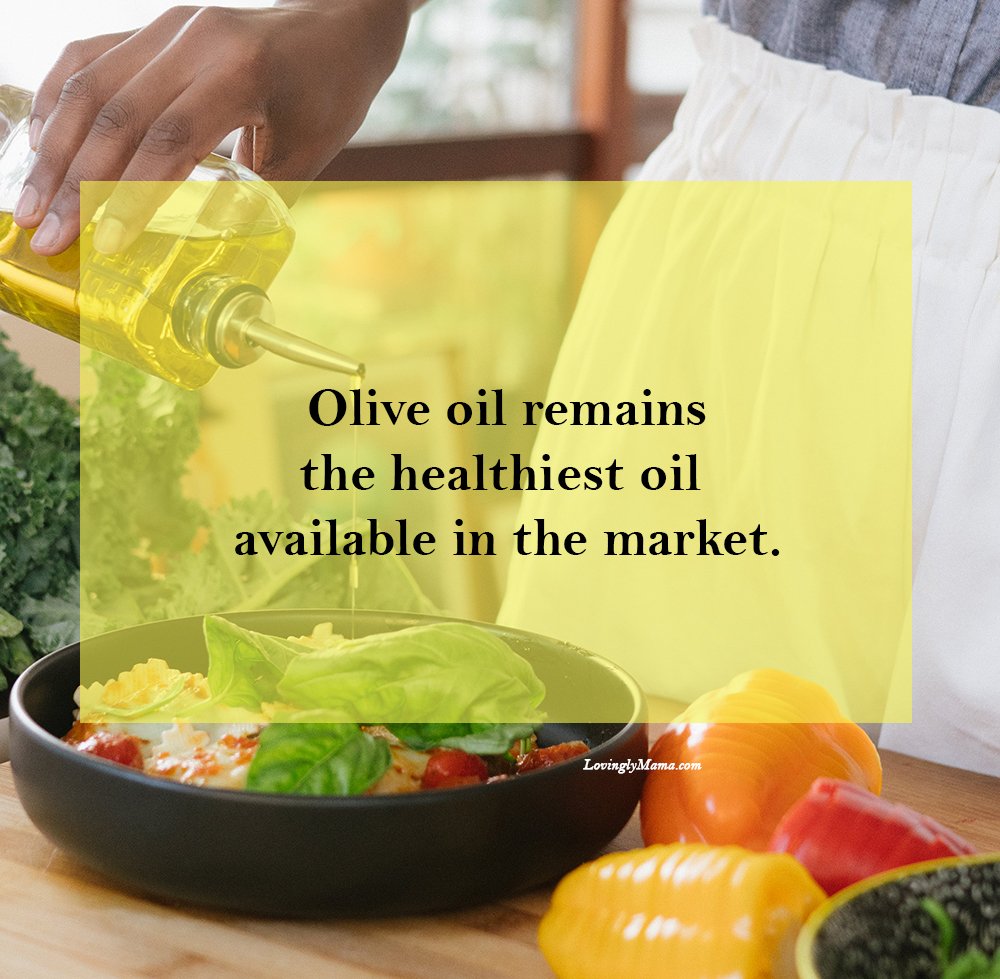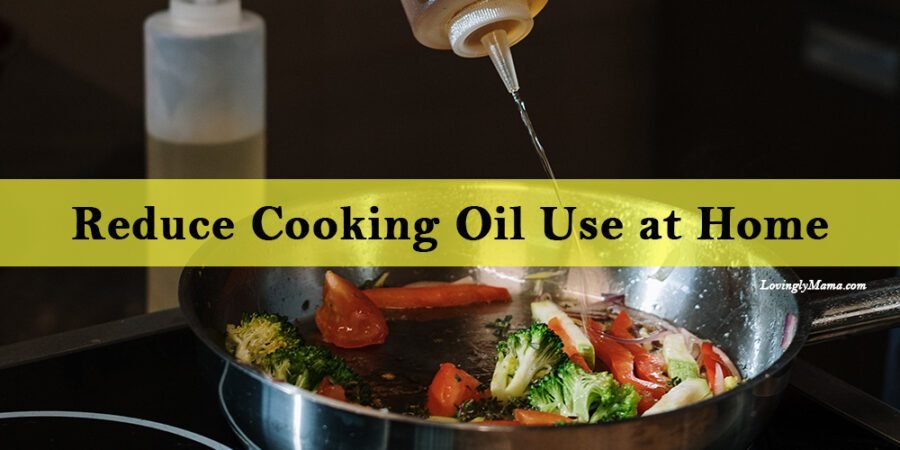During the pandemic, many people have started looking into their health. Lifestyles, including food preparation, have shifted to make way for healthier choices. If you already have a pre-existing condition or just want to eat healthier, minimizing the use of cooking oil is a smart choice for maintaining good health. It not only benefits your well-being but will also impact your grocery expenses. Let’s face it: excessive consumption of cooking oil has been linked to various health issues¹. Read more about practical and easy-to-implement tips on how to reduce cooking oil usage at home without compromising on taste or flavor.
Reduce Cooking Oil Usage in Food Preparation at Home
The keyword here is “reduce”. We are not saying that we should eliminate cooking oil throughout our lives and never touch fried food forever. We can still enjoy our favorite deep-fried dishes occasionally, as long as we consume them in moderation. It is the bingeing that hurts our organs the most.
Nevertheless, here are 10 ways you can reduce cooking oil usage at home so that you can serve healthier meals to your family.
Opt for Healthier Cooking Methods
Instead of deep frying, explore alternative cooking techniques such as baking, grilling, steaming, or air frying. These methods require little to no oil and can result in delicious meals with significantly less fat content.

Use Non-Stick Cookware
Investing in high-quality, non-stick pans and pots can minimize the need for excessive oil while cooking. These surfaces reduce sticking, allowing you to use minimal oil or even cook entirely oil-free. If you are not comfortable using Teflon-coated pans, you can always pick ceramic or stone-coated cookware. By shifting to the use of non-stick pans, one obvious result that you will notice is a significant decrease in your supermarket purchases due to the high cost of cooking oil. That means extra savings to extend the family budget.
Try Cooking Sprays or Misters
Utilize cooking sprays or oil misters that dispense a fine mist of oil, ensuring even coating with minimal quantity. This method provides flavor without drenching your food in oil.
Use Natural Juices and Broths
When sautéing or stir-frying, consider using natural juices from vegetables or broths as a substitute for oil. They add moisture and flavor to your dishes while reducing the need for added fats.
Another idea that might not sit well with others is to avoid sauteing. You can just dump everything in your pan, including the garlic and onions, and cook until the natural oils come out. For chicken or pork, you can put the meats in the pan first to allow it to render its natural fat. Then you can stir in your chopped garlic and onions. This is, of course, assuming that you are already using non-stick cookware.
Utilize Healthier Oil Alternatives
Experiment with healthier oil alternatives like olive oil, avocado oil, or coconut oil, which have beneficial fats and can be used sparingly due to their strong flavors. However, according to studies, olive oil is the healthiest cooking oil² there is.

Drain and Blot Excess Oil
After cooking, let fried foods rest on paper towels to absorb excess oil. Blotting fried items like fries or fried chicken can significantly reduce the oil content. It won’t alter the flavor of food so you still get to enjoy your favorite fried dishes.
Portion Control
Use measuring spoons or a spray bottle to control the amount of oil used in recipes. Being mindful of portion sizes helps in cutting down unnecessary oil usage.
Employ Cooking Techniques to Reduce Oil Absorption
Preheating the pan before adding food prevents excessive absorption of oil. Additionally, using a higher heat and cooking food quickly can minimize oil absorption.
Utilize Alternative Ingredients
Explore substitutes like applesauce, mashed bananas, or yogurt in baking recipes that traditionally call for oil or butter. These alternatives can maintain moisture without the need for excess oil. Moreover, they can further enhance the flavor of your baked dishes.
Incorporate More Herbs and Spices
Enhance the flavor of your dishes with herbs, spices, and flavorful ingredients. By relying on these natural flavor enhancers, you can reduce the reliance on cooking oil for taste.
Eat Healthier: Reduce Cooking Oil in Your Meals
Reducing cooking oil usage at home is an achievable goal with numerous benefits for both your health and the environment. Even kids can benefit from this practice because it prevents the early onset of lifestyle diseases.
By implementing these practical tips and adopting smarter cooking practices at home, you can savor delicious meals while significantly cutting down on unnecessary oil consumption. Embrace these changes, even gradually, and you can witness the positive impact on your well-being and culinary creations.

Lifestyle Diseases That Can Arise from Too Much Fatty Foods
A diet that is high in fat, especially the constant consumption of deep-fried dishes, can damage your gut microbiome³. This imbalance will increase the number of unhealthy gut bacteria and decrease the number of beneficial bacteria.
These changes in the gut caused by fatty foods can lead to obesity and other chronic diseases⁴, such as:
- Cancer
- Heart disease
- Stroke
- Diabetes
- Parkinson’s disease
Happy and healthy eating!
Watch
Preparing Visayan adobo using less oil and more aromatic and therapeutic culinary herbs. Reduce cooking oil in your diet for a healthier you.
@mommysigrid Hi, I am Mommy Sigrid, the Feel-Good Homecook of Bacolod. As much as I can, I personally cook our meals. I make dishes that bring happiness to the family. Ngayon, I am presenting my Visayan Adobo that's Version Mas Pinasaya. My husband doesn't like adobo, but my kids love it. So, I have to make a #VersionMasPinasaya using Sarsaya® Oyster Sauce na magustuhan ng lahat! And this is what I did. #SarsayaOysterSauce @Cookmunity By Ajinomoto PH #food #adobo #Pinoyfood #cookingreels #cookingathometiktoktv #foodreels #howtocookadobo #cookingvideo #family #homecook #Homecooking #recipe #fyp #foryoupage #chickenadobo #cookingmama ♬ original sound – MommySigrid
Sources:
¹ Oils For Cooking: Which Ones Should You Avoid? © The Health Sciences Academy ®. All Rights Reserved, https://thehealthsciencesacademy.org/health-tips/oils-for-cooking/
² 4 Healthier Cooking Oils (and 4 to Avoid), Joanna A. Cooper, M.D., Sutter East Bay Medical Foundation, https://www.healthline.com/nutrition/best-cooking-oils#fa-qs
³ Gut Microbiome, Cleveland Clinic, https://my.clevelandclinic.org/health/body/25201-gut-microbiome
⁴ 7 effects of fatty foods on your body, Vinmec International Hospital Joint Stock Company, https://www.vinmec.com/en/news/health-news/nutrition/7-effects-of-fatty-foods-on-your-body/


Thanks for sharing this Mommy Sig.. Mas Healthier talaga kapag nag reduce tayo sa paggamit ng Cooking oil.. Super dami pa lang way para hindi tayo masyadong gumamit ng cooking oil. Sa akin minsan Airfry o kaya di ko na din po ginigisa sa mantika kapag nagluluto ako.
Thanks for this Mommy Sigrid.
Laking Help nito hindi lang sa Budgeting
Nakakatulong din sa Health natin
Thank you for sharing big help talaga ito worth it to read na na reremind tayo kung paano maging healthy Ang ating lifestyle para maka iwas o mabawasan Ang risk Ng mga sakit na dulot nito sa ating katawan kaya maganda din talaga Yung mga nauuso na mga nonstick pan Kasi nakaka reduce ng oil sa pag gamit nito malakingbtulong sa atin upang mapangalagaan Ang ating sarili at pamilya.
Yes ma mahilig ren Kami and talgang nakaka sanayan naren namin yan mi thanks for sharing po very informative po eto mi♥️
Thank you for sharing mommy … Para sa health natin, need talaga i lessen ang cooking oil sa mga luto.